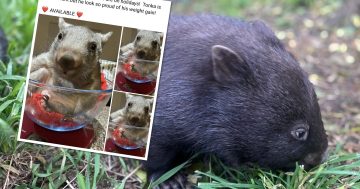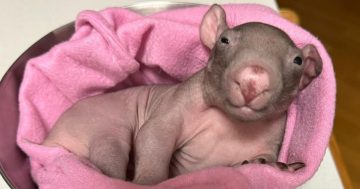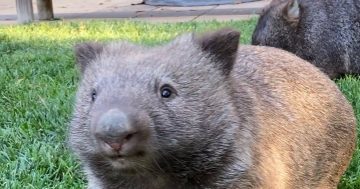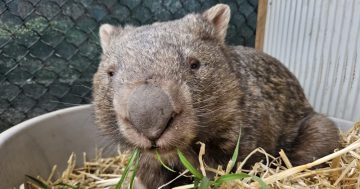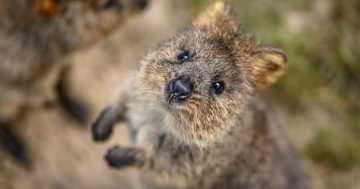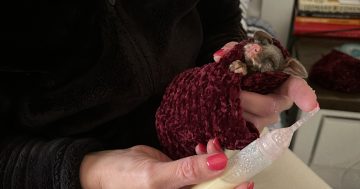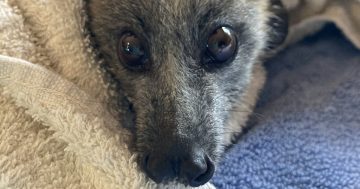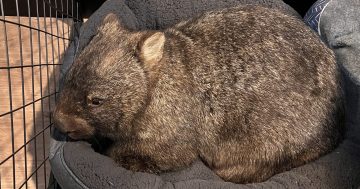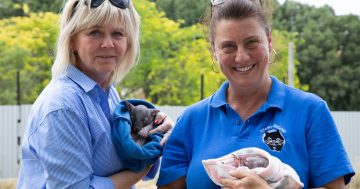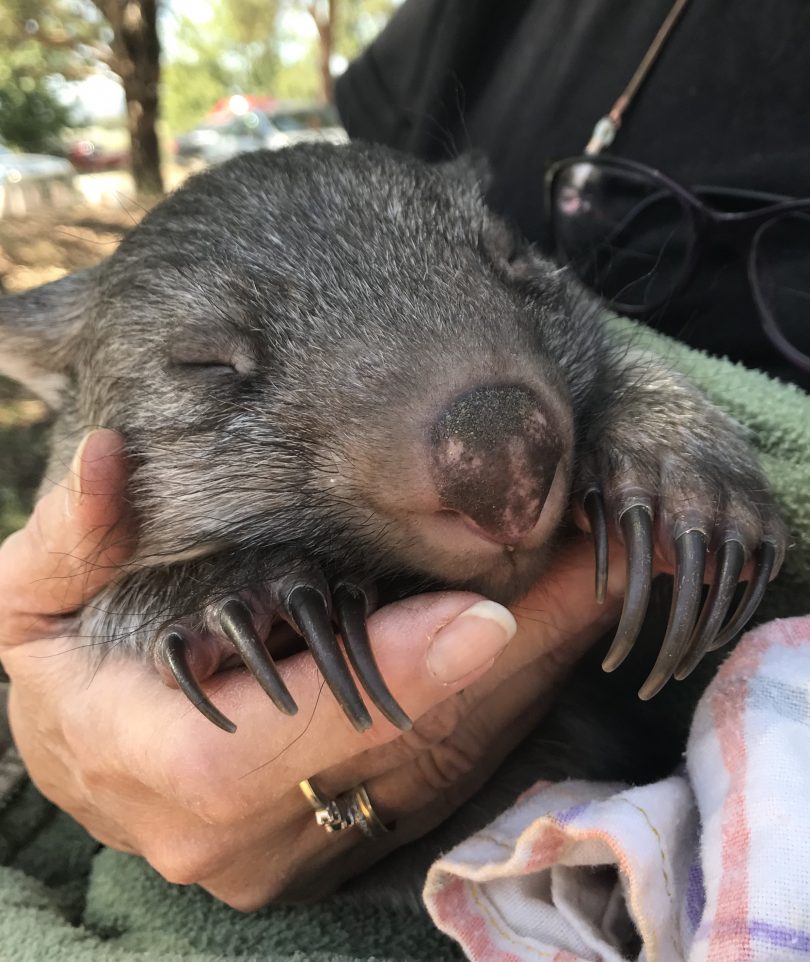
Baby Yarra sleeps contentedly through the ACT Wildlife building opening. Photos: Genevieve Jacobs.
Tiny Yarra is about as cute and sleepy as a baby could be, but he had a rough start to life. When his mother was killed by a car, the baby wombat was thrown free from her pouch and, disorientated and injured, was very fortunate to be found by a sharp-eyed member of the public and taken into proper care.
But on Sunday (17 February) along with his equally gorgeous friend Adelaide, he was part of the celebrations as ACT Wildlife marked the opening of a new building on Dairy Rd with a ribbon-cutting ceremony. It’s been a remarkable journey for the organisation that began just five years ago and has now cared for over 10,000 animals.
President Marg Peachey says that a Land and Environment grant from the ACT government two years ago helped tremendously with the organisation’s expansion, as has the generosity of the 57 households of trained carers who help everything from injured birds to orphaned wallabies.
“We often have husbands and wives sharing the care and children helping out – because carers need a holiday too!” Marg says. And make no mistake, it’s a major commitment to nurse injured, traumatised or orphaned animals back to health.
Nestling Yarra in a padded sling, wombat care specialist Lindy Butcher gives a sense of just how demanding the care can be.
“When tiny orphans come into care we have to check for injuries caused by being in a car accident, including broken bones, often brain injuries, whether their internal organs are torn, because they may not recover from that. There’s rehydration, establishing them on formula, round the clock feeding, keeping them at the right temperature, keeping their skin moist and meeting their psychological needs for comfort.”
As if everything else wasn’t enough to deal with, meeting the emotional needs of an injured wombat might sound like a tall order. Lindy explains that as a “pinkie” and until they’re around four kilos, the baby wombat would be in their mum’s pouch. That means they need “wrap-around care” – heartbeats and body contact, consistent care from the same person and a secure quiet comfortable world.
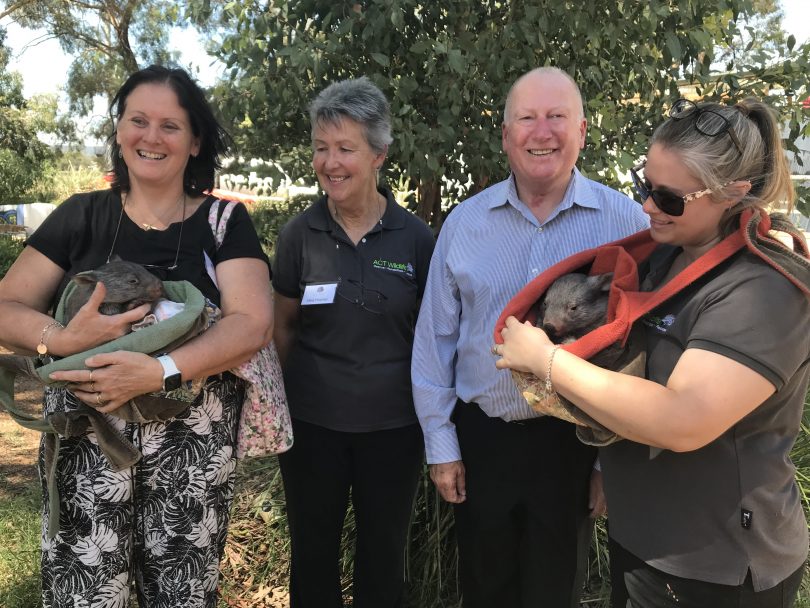
Lindy Butcher with baby Yarra, ACT Wildlife president Marg Peachey, Land and environment minister Mick Gentleman and a wildlife carer with baby wombat Adelaide.
Carers come in all shapes and sizes and Marg says they need to be aware that the animals are not pets, but wild creatures who need nurturing but must also be prepared for safe release. Her speciality is bird care, and she is always delighted when birds go back to their own families. “I’ve released a wattle bird and within two seconds there’s a partner flying down to say hello,” she says.
Careful initial contact can also reunite temporarily lost baby birds with their parents, but a true orphan will take six to eight weeks, with the intention of making them wild enough “not to go and land on someone’s shoulder”, Marg says.
The caring work needs patience and skill, and Marg concedes that the eventual take-up rate is small. “People see it on television with little cuddly animals who are adorable and don’t realise how much work it is. I have animals where I’m preparing about four different diets every day for them,” she says.
“It needs commitment but we give them lots of training and support. It’s a perfect thing for retired people.” Carers are recruited and trained several times each year and there is always a high demand for their skills.
Birds take between six and eight weeks to release as do baby bats, who often move on to a creche. Possums are with carers for six months, wallabies a year, and wombats a year to 15 months. Lindy adds that if you’re brave enough to take on the wombats you will also need “a wombat escape-proof enclosure with half metre deep foundations and at least 35 sq metres for them to burrow and do their night-time grazing behaviours”. Birds, possums and bats don’t require quite the same level of Stalag 13 arrangements.
And while Yarra and Adelaide are as naughty as a pair of toddlers at home, Lindy Butcher wouldn’t have it any other way. “When you see this little face first thing every morning staring up out of the cot covered in poo because they’ve messed in the cot and walked all through it, it is really hugely enjoyable!” she says.
Would you like to become a wildlife carer? Contact actwildlife.net, or for help with an injured animal, call 0432 300 033












